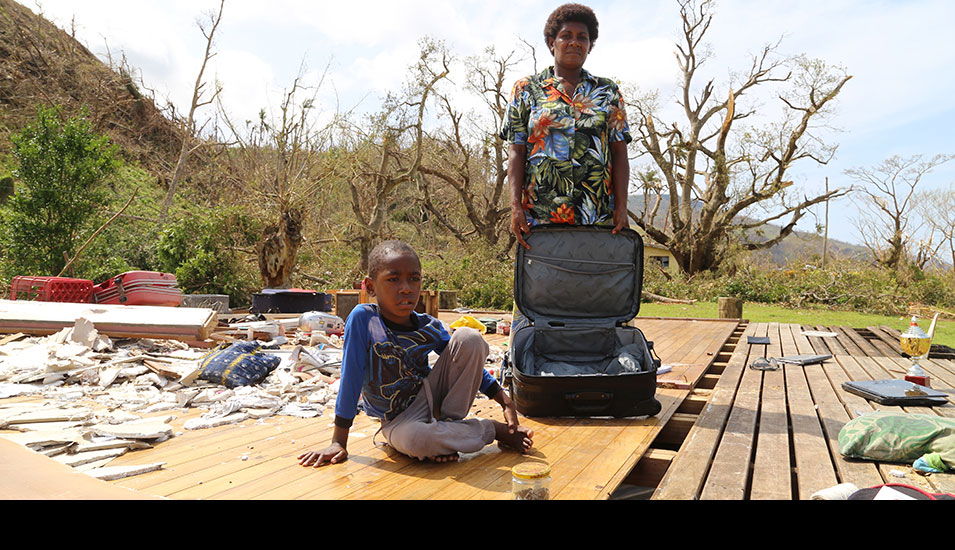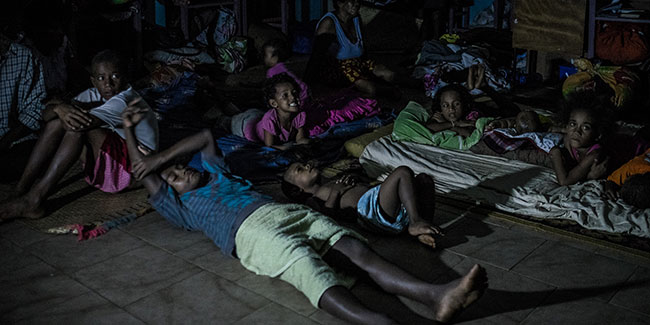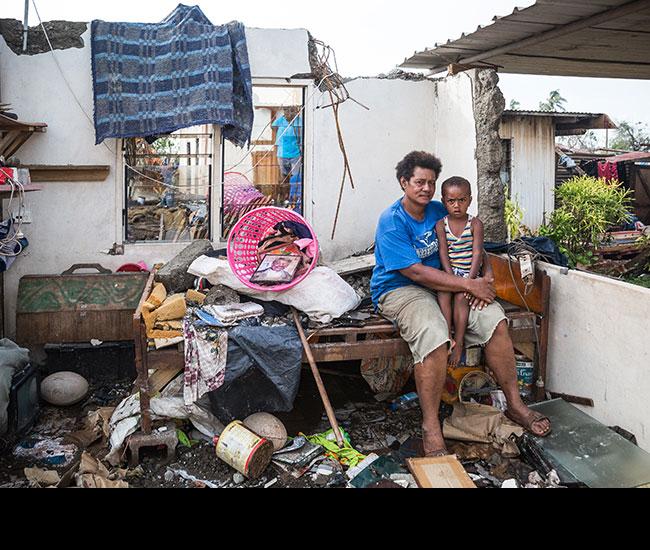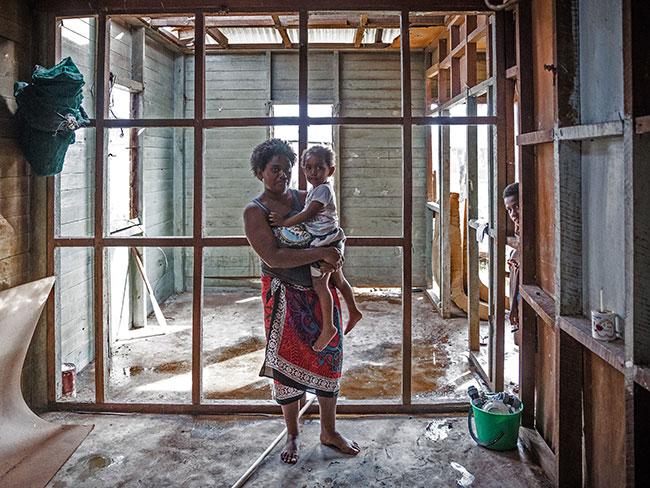
As the full picture of the worst cyclone ever to hit Fiji becomes more apparent, UNICEF Pacific estimates that up to 120,000 children across the county may be worst affected.
Destruction in some of the worst hit areas is “overwhelming”, says a new UNICEF report coming out of Fiji today.
Koro Island was one of the areas worst affected by Category 5 Tropical Cyclone Winston that made landfall in Fiji on Saturday 20 February, continuing its path of destruction into Sunday 21 February.
UNICEF Pacific Senior Communications Assistant, Joseph Hing, who travelled with the first shipment of emergency supplies to Koro Island reported today, “The damage to Koro Island is extensive and the scale of the destruction is overwhelming. I spoke to countless people who have lost everything. Their lives have been turned utterly upside down.”
“The first village we visited looked like someone had taken a torch and burnt from one side to the other. The devastation was unbelievable, all there was were broken trees and scattered debris, everything was completely gone.The terrible smell of dead livestock welcomed us…”
HIng’s account tells of a mother who hid her baby inside a suitcase and used her body as a shield as the storm ripped apart her house. When the eye of the cyclone came over the village the family had only 30 seconds to run to the evacuation centre before the storm began again. Full story: http://bit.ly/1TA6Lo9
Response
In the wake of Cyclone Winston, UNICEF says its main concern is for children, pregnant women and breastfeeding mothers across Fiji, and “Little is yet known about the status of communities living on the outer islands of Fiji that were directly under the eye of Tropical Cyclone Winston.” Fiji’s geography presents logistical challenges.
UNICEF Pacific Representative, Karen Allen, warned of continuing dangers to Fiji's children, and said UNICEF is continuing to work in close partnership with the Government of Fiji and other partners in order to ensure a coordinated and strategic emergency response.
The Fijian Government is rapidly working to assess the overall situation in order to pinpoint the critical needs and had declared a state of natural disaster for the next 30 days and initiated the clean-up process by clearing the huge amounts of debris scattered everywhere.
"The trauma of the event itself must not be underestimated and many will have suffered greatly," said Ms Allen. “Many children have been affected by varying degrees of loss; the devastation of losing family or community members, the sadness of losing homes or belongings, and the danger of losing places of critical importance to the their development, such as schools and health centres.
“For children in particular, there are many dangers at play in a post emergency situation. The Fiji Government has for instance, stressed the critical need for access to clean and safe drinking water as one of the key priorities as part of this emergency response, especially for children which UNICEF strongly supports. Much of the water supply has been affected due to storm damage and there is there is increasing levels of stagnant water that are a breeding ground for diseases like diarrhea.”

UNICEF is providing an initial response using prepositioned supplies that have been requested by the Government of Fiji.
“Funding is needed to sustain and scale up this response.,” said Ms Allen.
Within the first 24 hours of the request of the Government for assistance, UNICEF has taken the following actions.
• 3,000 people in the worst affected areas have been provided with WASH supplies to ensure safe drinking water.
• 995 students of eight schools in the Lau and Lomaiviti groups provided with education supplies, including temporary learning spaces and learning materials.
• Hygiene kits for 7,920 people and water purification tabs for 1,066 household were donated to UNICEF the Australian Government as part of an Australian Defence Force (ADF) airlift.
• Six Emergency health kits, to service a population of 1,000 people for 3 months, as well as tents and education supplies funded by the New Zealand Government have been provided for immediate distribution to worst affected outer islands.
On Wednesday night, health supplies which included vitamin A capsules, oral rehydration salts, zinc tablets and six basic health kits were loaded onto boats departing for Gau Island and Batiki Island. Partially funded by New Zealand Ministry of Foreign Affairs and Trade (MFAT), the supplies will be used to prevent infection and illnesses especially in women and children.
44 deaths
Meanwhile, the Fiji Times website reported this morning that the death toll from Severe Tropical Cyclone Winston has increased to 44. Latest statistics from the Fiji National Disaster Management Office recorded 22 deaths from the Eastern Division, 13 from the west, six from the Central Division and three from the Northern Division.






